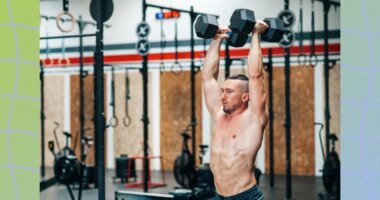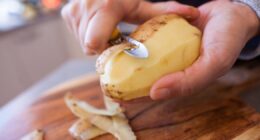
Role Of Dads In Managing Postpartum Depression Explained By Neonatologist
The meaning of “DAD” has gradually changed over the last few decades. It is now an accepted norm that Dad is a friend of the children as they grow older, and he is neither the boss nor the “head” of the family as we traditionally thought. Dr R Kishore Kumar, Neonatologist and Pediatrician at Cloudnine Group of Hospitals, Bengaluru, explain why?
Role Of Father
When we grew up “Father” had a different meaning he was the earning member of the family, head of the family taking all significant decisions for the family and “directing” the future course of the family. Over the past few decades, that has “faded” with the “housewife” mother concept being replaced with “working mother” and “shared responsibilities as parents”, and children see their parents as guardians initially and later as friends as they get older. These days children need their parents as guides but the final decision will be their own. No more decisions by the father whether for education or marriage have become obsolete.
Postpartum Depression
Post-Partum-Depression (PPD) is more common in working mothers with no support, especially if the husband continues as he was before the new mother became pregnant without adjusting to the new norm. Not spending that extra time with the new mother nor caring for the baby leaving everything for the new mother to care for leads to much unhappiness and sleepless nights for the mothers which in turn increases the risk of PPD.
Risk Of PPD
Working women, especially high achievers, need emotional support and counselling to transition from work to Pregnancy/Childbirth. Otherwise, they are at risk of PPD. With nuclear families, new mothers depend on their partners to provide that emotional support. They sometimes may see their partners having a gala time with all the benefits of work and them being left behind. A “supportive husband/partner or new Dad” goes a long way to preventing/identifying PPD.
READ RELATED: Nutritionist Sheds Light On Barley Grass: Nature’s Gift For Inner Harmony
Dads can do the following (not an exhaustive list) to prevent/identify PPD in women:
- Spend quality time daily talking to the new mother about the advantages of being a mother.
- Help praise the sacrifices the new mother makes for a baby/family.
- Support by giving “breaks” to the new mother to have adequate sleep
- Support the new mother by helping with the multiple chores at home like cooking, cleaning the kitchen, changing the nappy for the baby, and responding to the baby’s crying quickly.
- Feeding the baby at night with breast milk so the new mother can get a break when exhausted.
- Not be a demanding husband and expect everything to be like before she delivered the baby.
- Take the time to have frequent “outings” for fresh air and probably go to baby-friendly places.
- Talk less about the work and pressures than about new mothers, their priorities and baby shopping.
- Participate actively in sharing the time for baby care, babysitting, etc.
A supportive Dad can go a long way in preventing PPD in women. Suppose the new mother shows signs of depression. In that case, the new Dad/partner is the right person to identify the symptoms of emotional outbursts and teariness and seek appropriate professional help as soon as possible to get women with PPD to receive timely counselling and treatment.
Total Wellness is now just a click away.
Follow us on
window.addEventListener(‘load’, (event) => {
// $(document).ready(function(){
$(‘#commentbtn’).on(“click”,function(){
(function(d, s, id) { var js, fjs = d.getElementsByTagName(s)[0]; if (d.getElementById(id)) return; js = d.createElement(s); js.id = id; js.src = “//connect.facebook.net/en_US/sdk.js#xfbml=1&version=v2.3”; fjs.parentNode.insertBefore(js, fjs);}(document, ‘script’, ‘facebook-jssdk’));
$(“.cmntbox”).toggle();
});
// });
});








